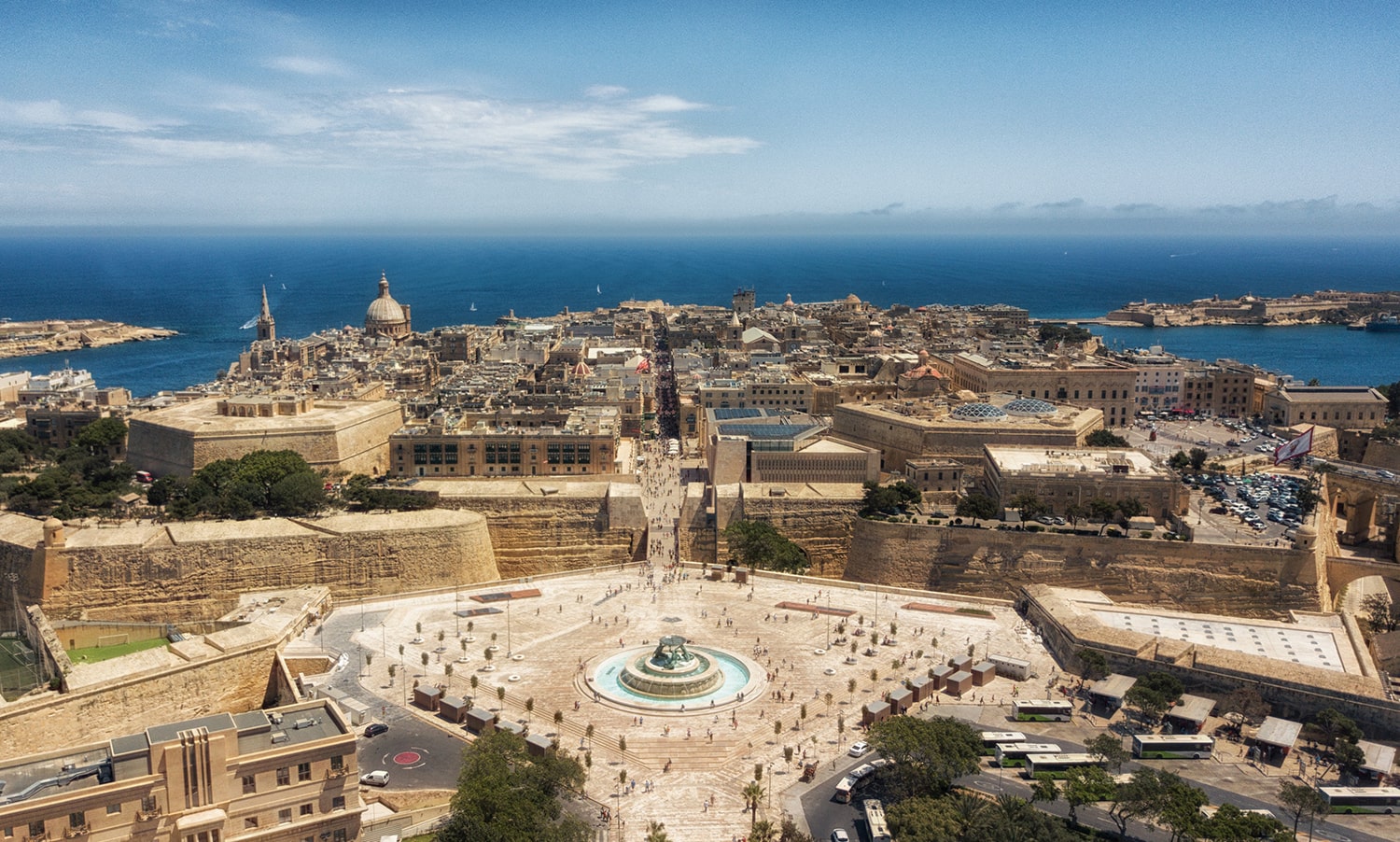WHY MALTA?
The Maltese Islands have an area of 316 sq km, putting Malta as the tenth smallest country in the world, having a population of approximately 540,000 at the end of 2022.
In 2004, Malta became a member state of the European Union and made a switch in currency to the Euro soon after. Malta’s political system is that of a single-chamber parliamentary republic, having the prime minister as the head of government and the president as head of state.
Malta, a European country located in the middle of the Mediterranean Sea between Europe and Africa, is a favoured destination for businesses and individuals alike.

Malta joined the EU in 2004 and the Eurozone in 2008

Official languages: Maltese and English

Numerous private and international schools & a highly rated educational system

Population: around 540K

Full imputation tax system

Robust information systems architecture

Location: Mediterranean Sea (60 NM south of Italy)

Citizenship and residency programmes

Solid financial services centre
Excellent healthcare system
CORE ECONOMIC SECTORS
Since 2004 Malta has been a full member of the European Union placing the island at an important crossroads in the Mediterranean.
Today the bulk of Malta-based industries are electronic or pharmaceutical firms with some very big players present on the island. Malta’s infrastructure in ICT and the connections to the rest of the world has allowed for a growing sector with a multitude of activities ranging from software development, artificial intelligence, online technical support services, and more. On the other hand, the growth of the pharmaceutical sector is due to the manufacture of medical devices, pharmaceuticals, and the development of software to aid the industry. Further enhancing this sector is the Malta Life Sciences Park aimed to provide growth, research, and development of life sciences.
The service industry has also flourished and Malta is a fully fledged financial services centre geared to compete within the European Union. It has developed its legislation in line with EU and OECD guidelines and offers some very attractive packages that make working from the middle of the Mediterranean that more attractive.
Languages
Maltese, the only Semitic language in the European Union, is one of two official languages in Malta, alongside English. Malta’s history of occupation contributed to the development of the Maltese language we know today, influenced not only by Arabic, but also English, French, and Italian.
The majority of citizens of Malta speak both English and Maltese fluently, with many people also speaking an additional European language. Within the offices of Fenech & Fenech Advocates, multiple languages are written and spoken, including Maltese, English, French, German, Italian, and Arabic.


